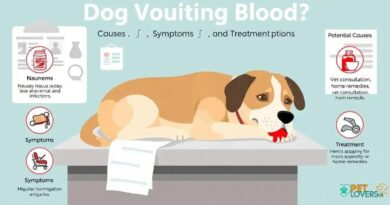What is: Amylase deficiency in dogs
What is Amylase Deficiency in Dogs?
Amylase deficiency in dogs refers to a condition where a dog’s pancreas does not produce enough amylase, an enzyme crucial for the digestion of carbohydrates. This deficiency can lead to various gastrointestinal issues, as carbohydrates are not broken down properly, resulting in malabsorption and other related health problems.
Understanding Amylase and Its Role
Amylase is an enzyme that plays a vital role in the digestive process by breaking down starches into simpler sugars. In dogs, amylase is primarily produced in the pancreas and salivary glands. When a dog has amylase deficiency, the body struggles to digest carbohydrates effectively, which can lead to symptoms such as diarrhea, weight loss, and bloating.
Causes of Amylase Deficiency in Dogs
The causes of amylase deficiency in dogs can vary. Genetic factors may play a significant role, as some breeds are more prone to this condition than others. Additionally, chronic pancreatitis, pancreatic cancer, or other pancreatic disorders can impair the production of amylase, leading to deficiency. In some cases, dietary factors or malnutrition may also contribute to the problem.
Symptoms of Amylase Deficiency
Dogs suffering from amylase deficiency may exhibit a range of symptoms. Common signs include chronic diarrhea, vomiting, and excessive gas. These symptoms often arise after the consumption of carbohydrate-rich foods. Other indicators may include weight loss despite a normal appetite, lethargy, and abdominal discomfort. If you notice these signs in your dog, it is essential to consult a veterinarian for proper diagnosis and treatment.
Diagnosis of Amylase Deficiency
Diagnosing amylase deficiency in dogs typically involves a combination of physical examinations, medical history assessments, and laboratory tests. Veterinarians may conduct blood tests to measure the levels of amylase and other pancreatic enzymes. Additionally, fecal tests can help determine if there is malabsorption occurring due to the deficiency. Imaging studies may also be utilized to evaluate the pancreas and surrounding organs.
Treatment Options for Amylase Deficiency
Treatment for amylase deficiency in dogs often focuses on dietary management and enzyme supplementation. A veterinarian may recommend a low-carbohydrate diet to reduce the burden on the digestive system. In some cases, enzyme supplements containing amylase may be prescribed to aid in the digestion of carbohydrates. Regular monitoring and follow-up visits are crucial to ensure the dog’s health and adjust treatment as needed.
Preventing Amylase Deficiency
While not all cases of amylase deficiency can be prevented, certain measures can help reduce the risk. Feeding a balanced diet that meets the nutritional needs of your dog is essential. Regular veterinary check-ups can help identify potential health issues early on. Additionally, avoiding sudden changes in diet and ensuring your dog maintains a healthy weight can contribute to overall digestive health.
Living with a Dog with Amylase Deficiency
Living with a dog diagnosed with amylase deficiency requires some adjustments to ensure their well-being. Owners should be vigilant about their dog’s diet, avoiding high-carbohydrate foods and opting for specialized diets recommended by veterinarians. Regular monitoring of symptoms and maintaining open communication with the veterinarian can help manage the condition effectively and improve the dog’s quality of life.
Conclusion: Importance of Veterinary Care
Amylase deficiency in dogs is a manageable condition with proper veterinary care and dietary adjustments. Understanding the role of amylase and recognizing the symptoms can help pet owners take proactive steps in caring for their furry companions. Regular veterinary visits and adherence to treatment plans are crucial for maintaining the health and happiness of dogs with this condition.



